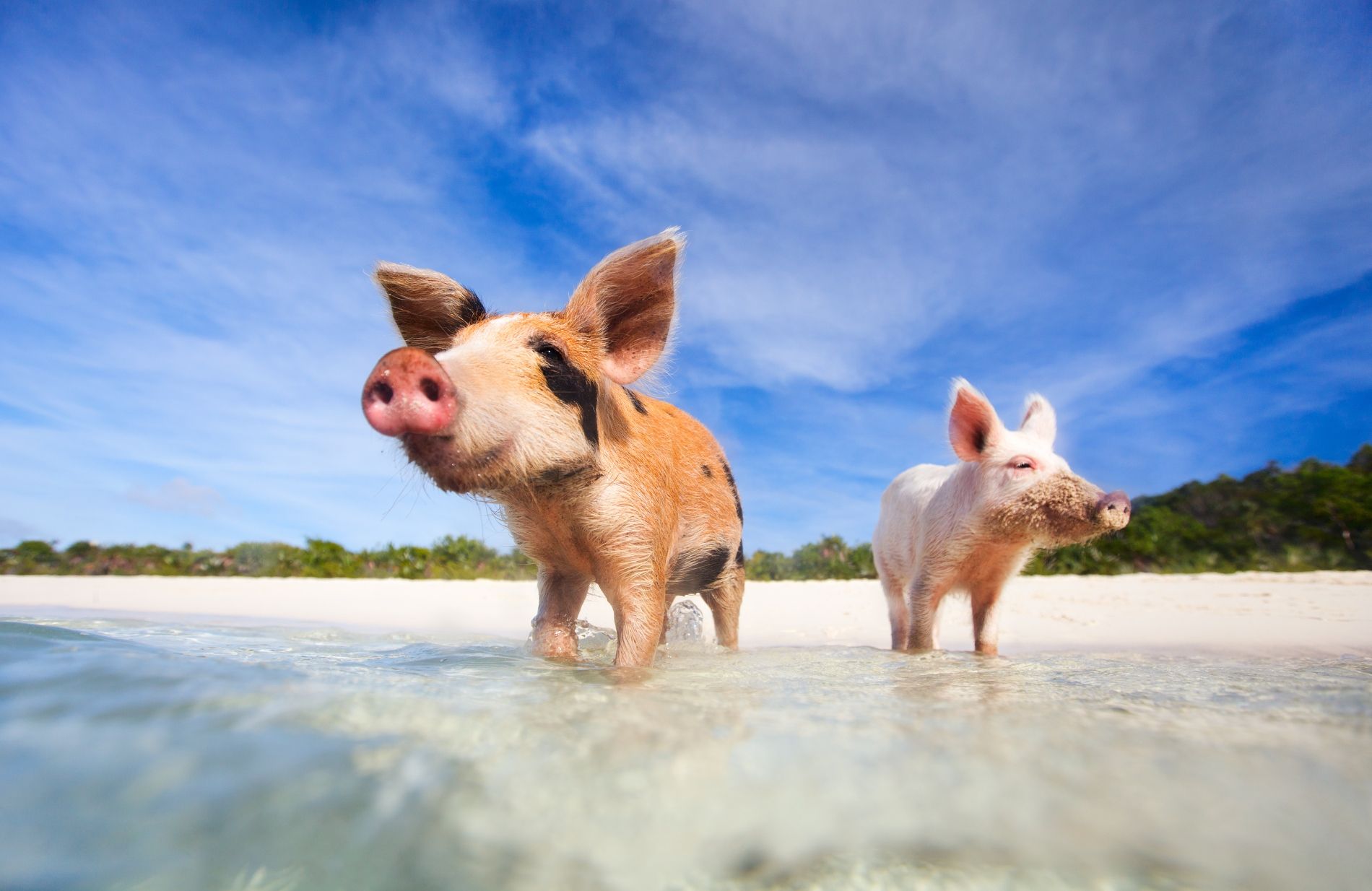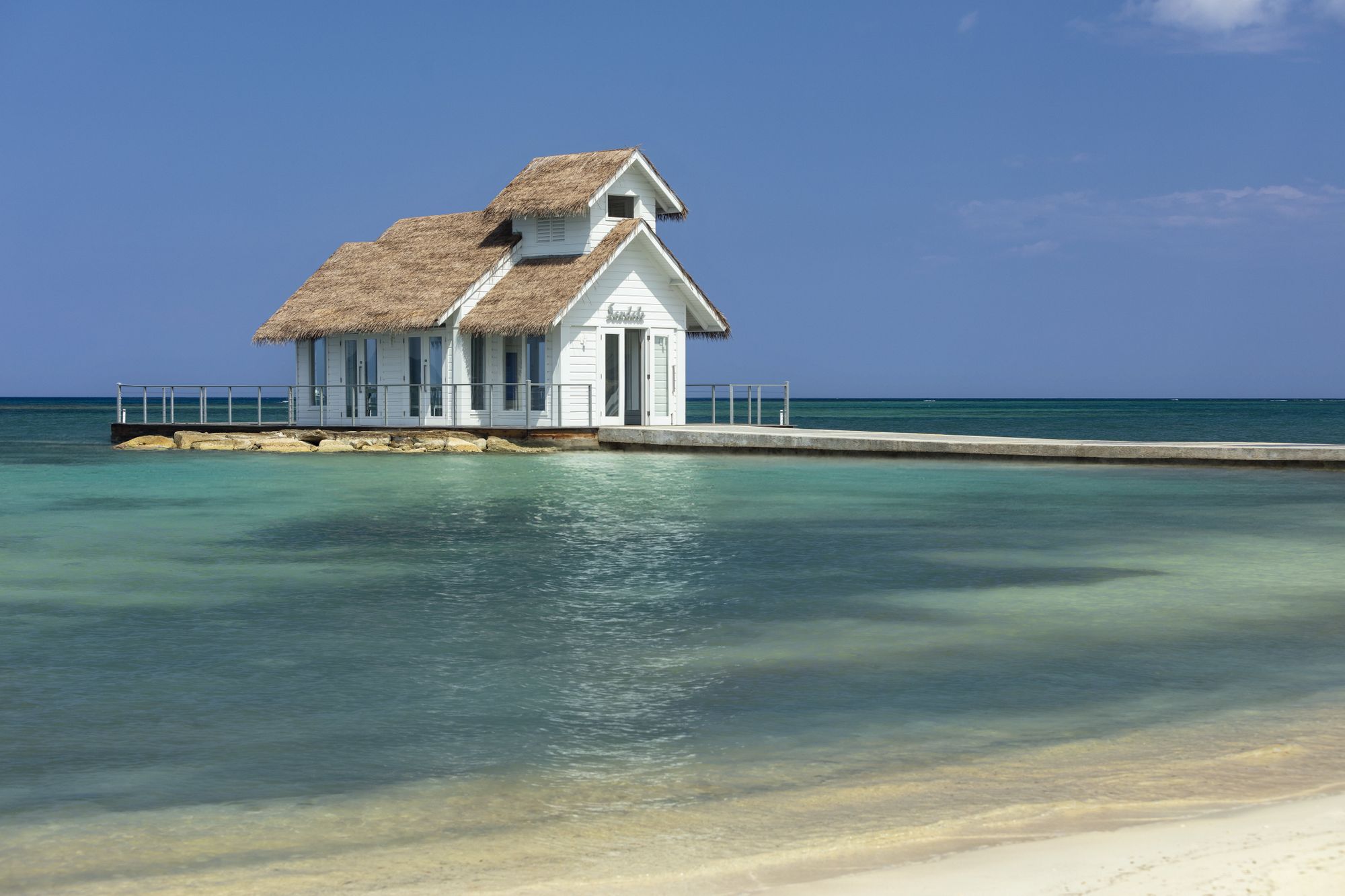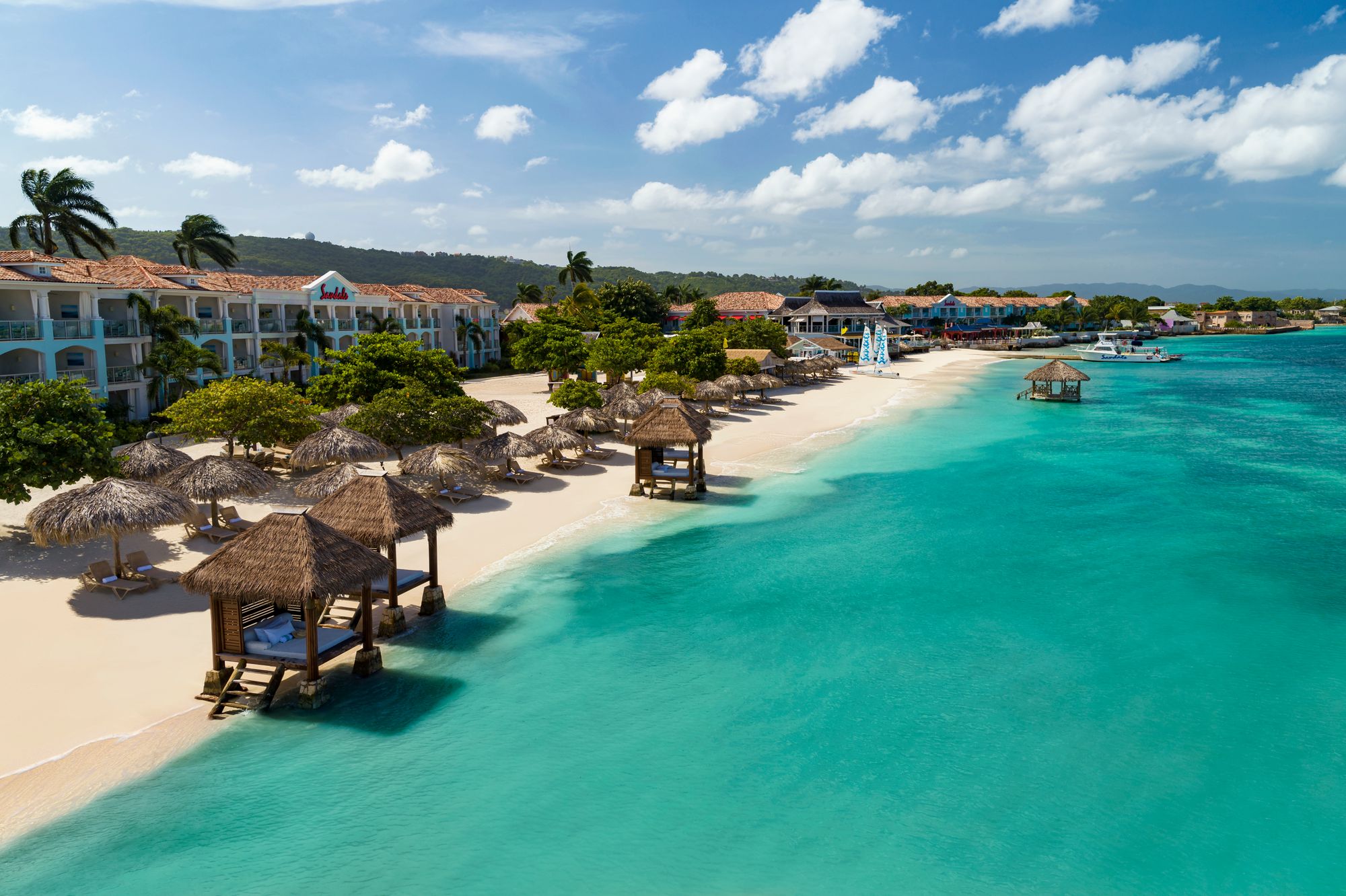Unwind On Island Time While Sailing In St. Vincent & The Grenadines
Rainbows in the ocean spray, and, if you’re lucky, in the skies. This is sailing in The Grenadines. Located just off the coast of Saint Vincent, exploring these islands and cays by boat requires completely just letting go, and trusting that your day out on the seas will be magical, trailing seabirds included!
But what can you expect when sailing in Saint Vincent & The Grenadines overall? This territory is home to several different islands and cays, all of them unique. Some of these islands are uninhabited. Many visitors to Saint Vincent, the main island, make a point of sailing to nearby Grenadine islands during their all-inclusive vacation. Each island is different, but the serenity remains the same. If you’re planning a sailing trip to this destination, we’ve got insights on the best yacht charters and sailing routes plus insider tips for a memorable adventure!
Good to know: In 2023, St. Vincent and the Grenadines saw a 20% increase in yacht charters, signaling a growing interest in this Caribbean paradise.
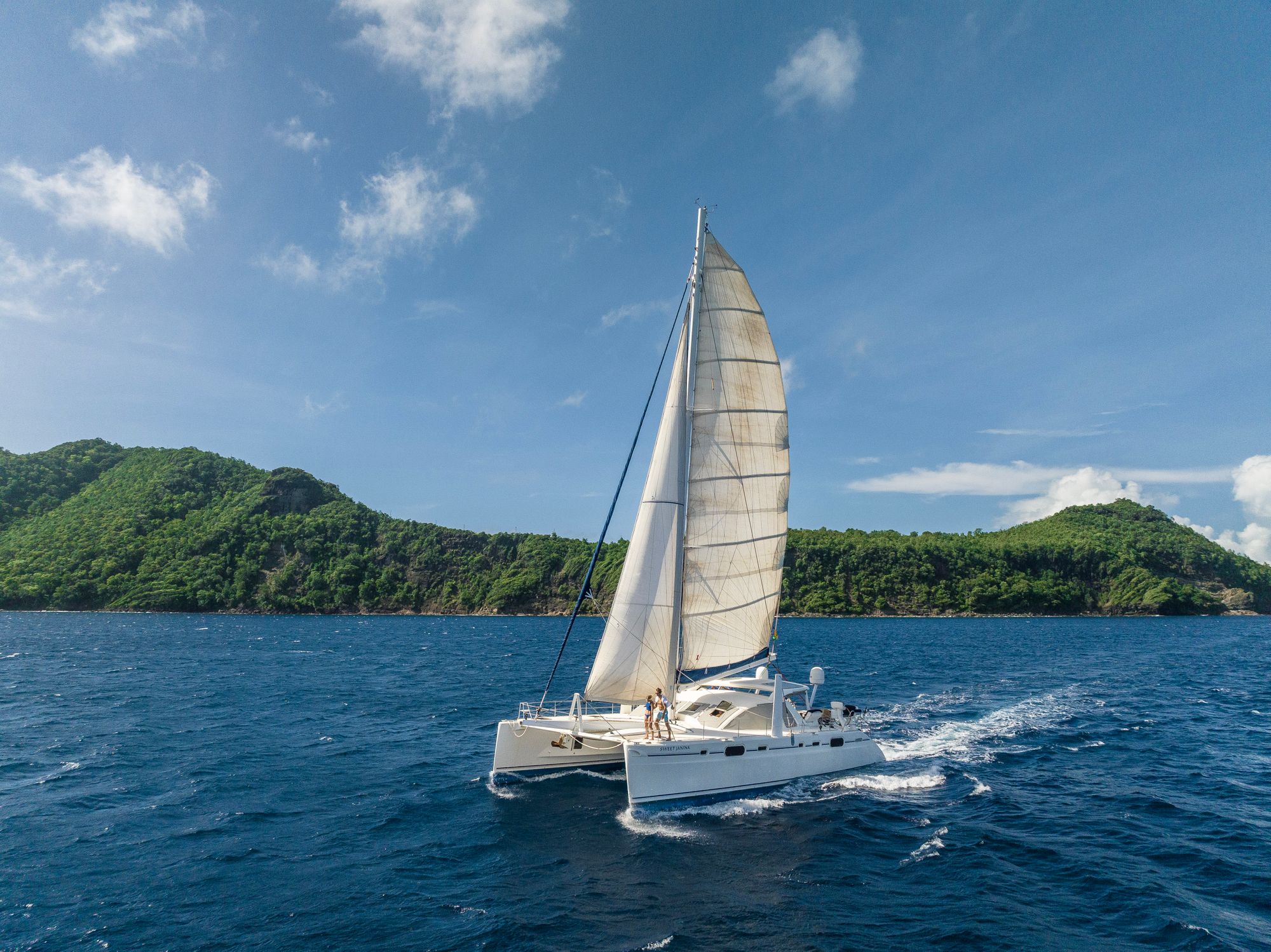
Table of Contents
Introduction to Saint Vincent and the Grenadines
Planning Your Sailing Itinerary
Legal Requirements and Customs
Wildlife and Marine Life Encounters
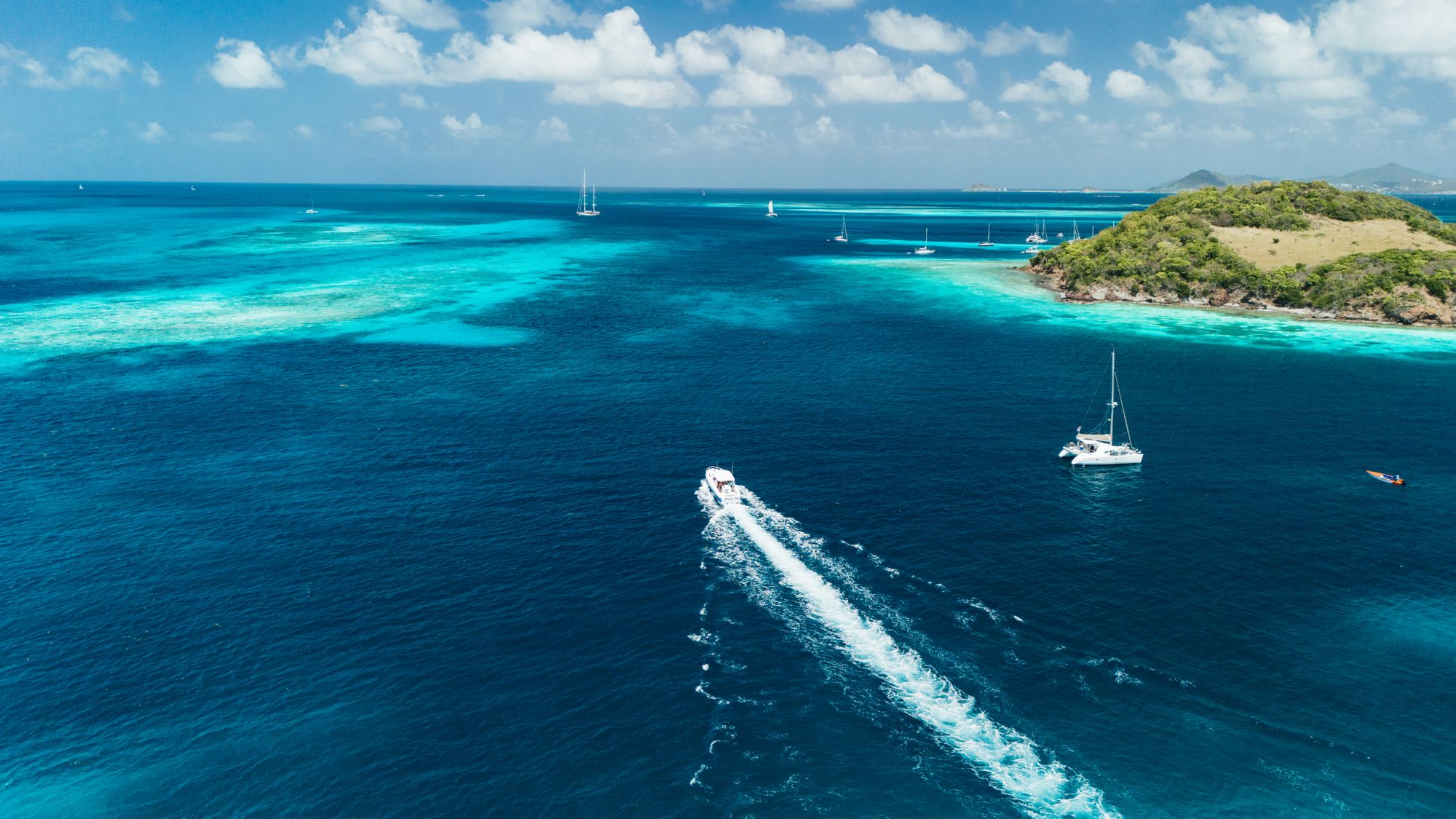
TL;DR: Key Takeaways for Your Grenadines Sailing Adventure
-
Best sailing season: December to April for optimal weather conditions
-
Must-visit destinations: Tobago Cays, Bequia, and Mustique
-
Charter options: Choose between monohulls, catamarans, and motor yachts
-
Respect local customs and environmental regulations
-
Embrace sustainable sailing practices to preserve the islands' beauty
-
Get into the local culture and cuisine for a richer experience
-
Prepare for unique wildlife encounters, both on land and in the water
Introduction to St. Vincent and the Grenadines
Saint Vincent is just as lush and scenic as you likely hoped it would be. In the nearby Grenadines, this is amplified 10-fold. Of the 32 islands and cays in this territory, Saint Vincent is the largest. Many of these islands can only be accessed by boat, and their remoteness adds to their appeal. The popularity of Saint Vincent and The Grenadines as a sailing destination has much to do with its beaches, marine life, and cultural experiences.
There are many ways to get to The Grenadines from Saint Vincent including via a Grenadines yacht charter. During this excursion, you’ll come across islands like Petite Rameau and its piles and piles of conch shell hills, Petit Tabac, also known as Johnny Depp Island (think Pirates of the Caribbean), and Bequia, known for its beach bars and stunning sunsets.
But, where to first? Wherever the wind blows! With a skilled captain, you’ll be well on your way to discovering the best of The Grenadines!
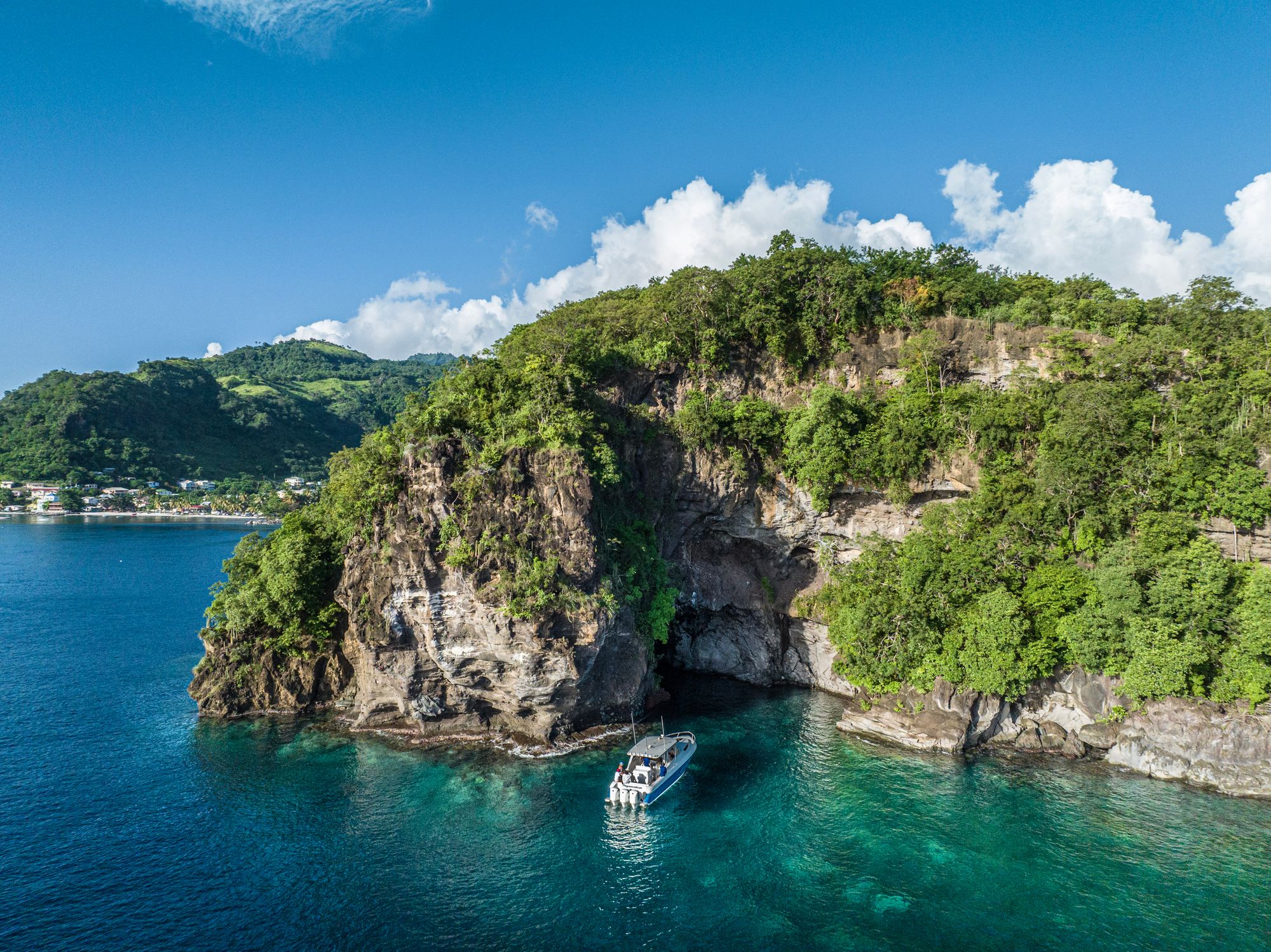
Culture, Cuisine & Climate
Learning as much as you can about any destination can lead to a smoother vacation. With St. Vincent, start with geographical details. This island sits on the northern tip of a majestic island chain, with The Grenadines stretching southward. Historically, St. Vincent & The Grenadines was known as “Hairouna” by the Carib Indians, meaning “Land of the Blessed.” This island’s flavorful cuisine and rich culture have many influences, including that of West Africa, Europe, and Caribbean nations like Jamaica. While sailing in St. Vincent & The Grenadines, visit the island’s famous black sand beaches, sandbar islands, cascading waterfalls, and so much more. You might also enjoy this island’s national dish: roasted breadfruit and fried jackfish!
Best Time to Sail
Timing is everything when it comes to sailing. But, with Saint Vincent & The Grenadines’ tropical climate and year round warm temperatures 24°C (75°F) and 30°C (86°F), you can pretty much sail throughout the year. Peak season months of December to April are the most yacht-friendly, but there are other good times to go. Here’s what you need to know:
Peak Season
Peak sailing season in Saint Vincent & The Grenadines is December to April. This is when you’ll find the clearest skies and calmest seas. Peak season can be a sweet spot for sailing the islands because of the steady trade winds, minimal rainfall and good weather. If you’ll be sailing during the peak season, book your charter as early as possible. Keep in mind that peak season can also mean more crowds and higher prices. The earlier you book your peak season sailboat, the better!
Good to know: Saint Vincent & The Grenadines has two main seasons: dry season and wet season. Peak season falls within the dry season which spans from December to May.
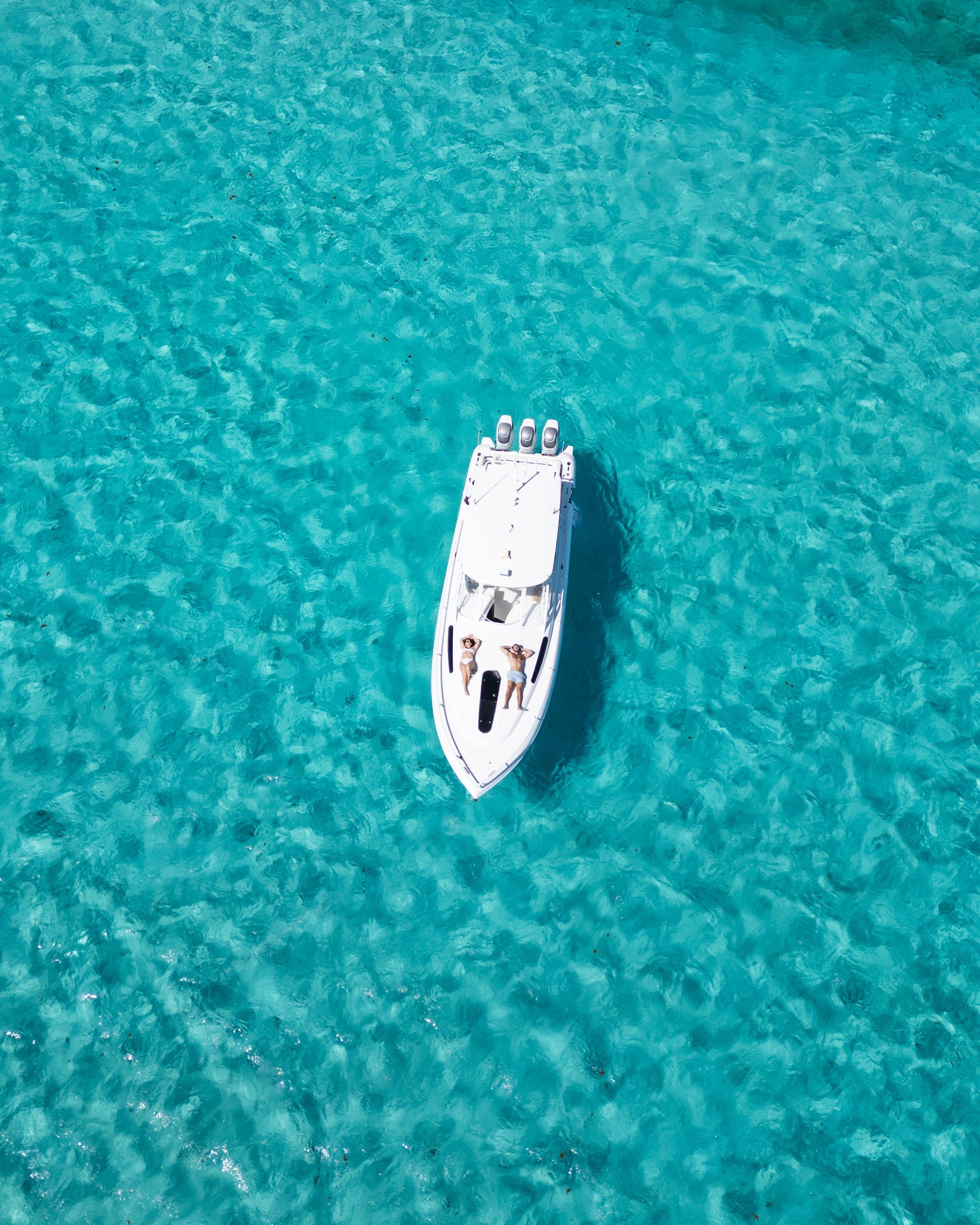
Off-Season Considerations
If you’re not able to travel to Saint Vincent & The Grenadines during peak season, no problem. Off season sailing is possible too, specifically from May to November. These months can be a bit rainier, but not always. Off-season can be a good time to save on sailing trips and to have a more adventurous trip overall. And, with less crowds, you’ll get to enjoy secluded anchorages and the chance to explore the islands at a more leisurely pace. If you’ll be traveling off-peak, keep an eye on the weather and be flexible with your plans!
Insider Tip: If you're sailing through the stunning Grenadines, Sandals Saint Vincent offers the ultimate stopover experience. Drop anchor and enjoy access to some of the island's best beaches and world-class service just steps from your yacht. Off season, you'll enjoy fewer crowds, serene island vibes, and often, irresistible vacation deals.
Planning Your Sailing Itinerary
Planning your itinerary is half the fun of a sailing trip, but it can also be a bit overwhelming. Whether you’ve got a couple of days or weeks at your disposal to go sailing in Saint Vincent & The Grenadines, you’ll want to make them count. Take a look at these itinerary suggestions that can help structure your sailing adventure:
One-Week Itinerary
Day 1: Set sail from St. Vincent, heading to Bequia
Day 2: Explore Bequia, overnight at Admiralty Bay
Day 3: Sail to Mustique, anchor at Britannia Bay
Day 4: Mustique to Canouan, with a stop at Mayreau
Day 5-6: Tobago Cays (worth spending 2 days if you can!)
Day 7: Sail back to St. Vincent, reminiscing about your awesome week
This route covers about 50 nautical miles in total. It's doable for most sailors, but be prepared for some longer stretches between islands.
Two-Week Itinerary
Week 1:
Day 1-2: St. Vincent to Bequia, explore the island
Day 3-4: Mustique, go ashore for some entertainment
5-6: Canouan, with a day trip to Mayreau
Day 7-9: Tobago Cays, because three days here is pure bliss
Week 2:
Day 10-11: Union Island, hike Chatham Bay
Day 12: Day trip to Palm Island
Day 13: Petit St. Vincent, for that castaway feel
Day 14: Leisurely sail back to St. Vincent
Good to know: Sailing itineraries can be modified to include islands not mentioned. Factor in the distances between islands when planning your trip.
Setting off for adventure
Most sailing trips to The Grenadines from Saint Vincent set off from the Blue Lagoon Marina on the southern coast. Yachts and charters will venture off from this point into the crystal-clear waters this destination is known for. As you get further away from the coast, several small green islands will come into view. Starting from St. Vincent in the north, there’s Bequia, Mustique, Canouan, Mayreau, and the Tobago Cays as you sail south. Each island has its own personality which adds a touch of excitement and unpredictability to any sailing adventure.
Insider Tip: On the lookout for the right base for your sailing journey? Sandals Saint Vincent is the most whimsical Sandals Resort yet! Everything you need for your vacation is included, from dining and accomodation, to entertainment, land and water sports, and more!
The Islands
Tobago Cays
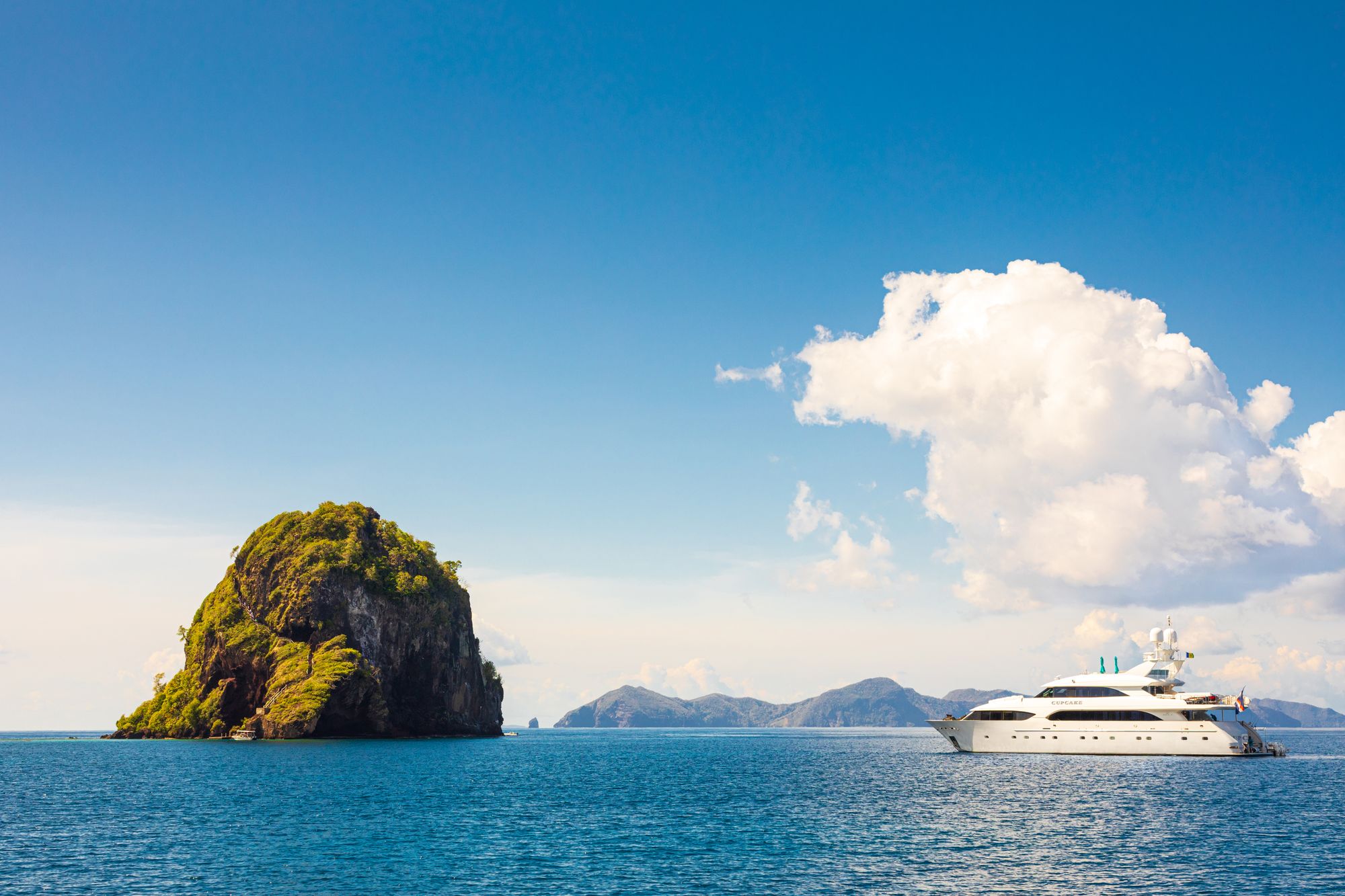
The Tobago Cays is a protected marine park and The Grenadines’ crown jewel. Here you’ll find five uninhabited islands surrounded by a breathtaking horseshoe reef. Diving is excellent in this destination and you can often spot sea turtles, stingrays, and sometimes sharks. The Tobago Cays is one of the Caribbean’s most beautiful anchorages and the scenes are truly breathtaking. When navigating boats, be aware of the numerous turtles in this area—they’re harmless but abundant.
Good to know: The Tobago Cays Marine Park serves as a conservation zone for all sorts of wildlife. No fishing is allowed within this park and anchoring is only allowed in designated areas to protect the seagrass beds – crucial habitat for sea turtles.
Bequia
Bequia is the second largest island in The Grenadines, but it’s still quite small and charming. This island is a favorite for sailing and yachting enthusiasts, with numerous sailboats and yachts often spotted along its coastline. If you just want a day trip and not a full island-hopping excursion, Bequia can be a good choice. Port Elizabeth, the main town, is a must-visit.
When sailing in The Grenadines, Bequia can be a good lunch stop, but as with most of the restaurants in The Grenadines, it’s best to order early, ahead of your trip, to avoid long waiting times when you get there. Some of the key spots on Bequia include Lower Bay Beach and Princess Margaret Beach. Though Princess Margaret Beach (named after the actual princess) is the more popular of the two, the bars on Lower Bay Beach are more affordable compared to those on Princess Margaret Beach. These beaches are in close proximity to each other.
Expert Tip: Bequia to St. Vincent and the Grenadines (SVG) is a 1-hour trip, or 30 minutes on the fast ferry. Daily ferry service is available, about $45 each way. Additional charges apply if you want to bring a vehicle across to the island from the mainland. These services are available via Bequia Express, and their weekly schedule is available online.
Mustique
Mustique is a privately owned island in The Grenadines. To visit, you’ll need to get approval from the Mustique Company. Despite the logistics involved with planning a trip to this island, it can be worth it just to experience the upscale ambiance of this island. Upon arrival to Mustique, you’ll likely anchor off Britannia Bay, then you can go ashore to explore.
Aside from its tropical allure, the chance to spot famous faces tends to draw many visitors to this island. Even royals like Princess Margaret are reported to have vacationed on these shores. To get to Mustique, make reservations then take a ferry from Kingstown. While there, don’t forget to pay a visit to Macaroni Beach and Basil’s Bar for a sunset cocktail. The lively weekly ‘jump-up’ events at Basil’s Bar are popular too.
Union Island
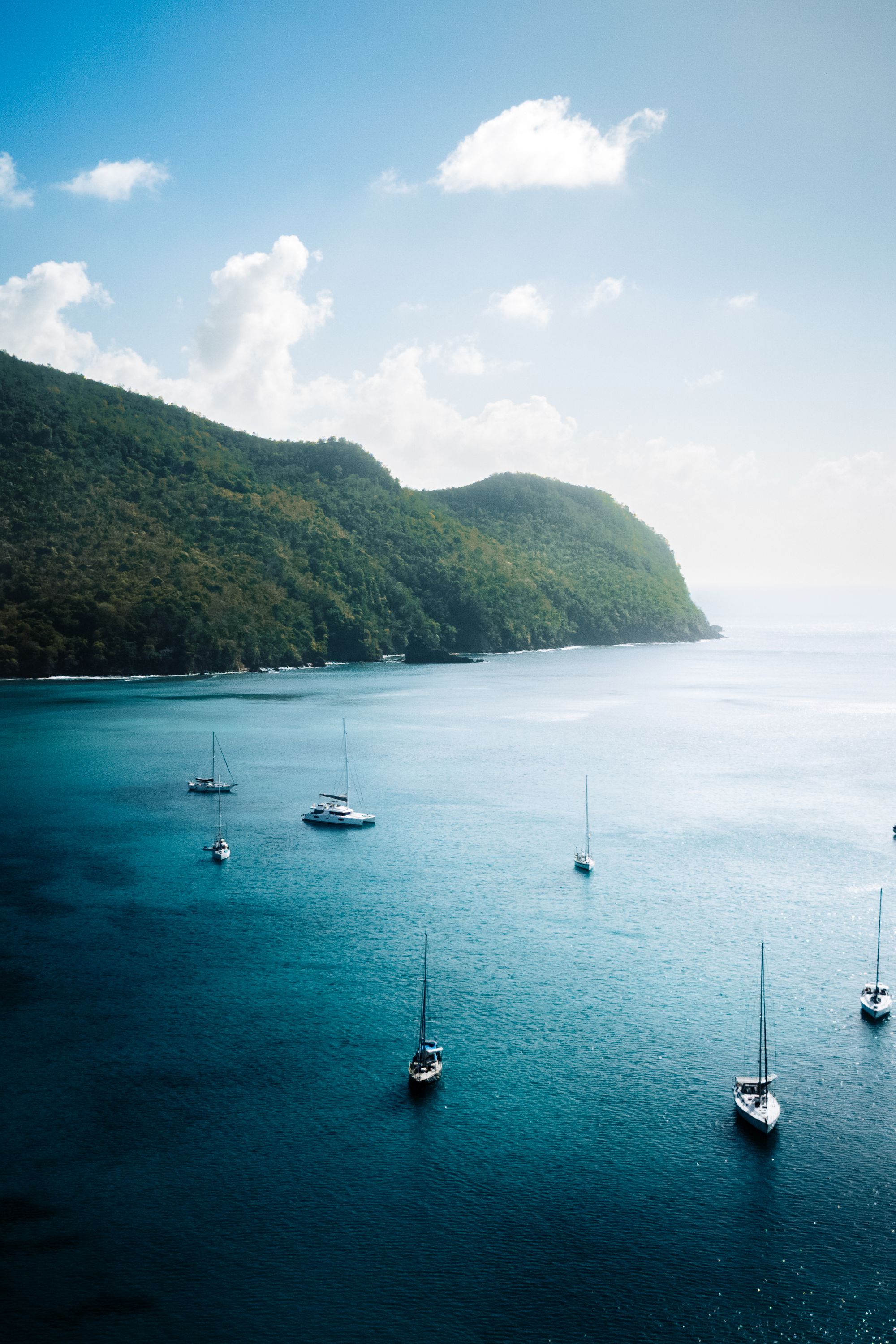
When sailing The Grenadines, chances are you’ll see more islands than you’ll actually visit. But, this really depends on the type of charter you’re on. In the Southern Grenadines, you’ll likely come across Union Island. If you stop here, spend some time at the scenic Chatham Bay or the nearby Happy Island. Chatham Bay is secluded and known for its clear water and exceptional diving. Happy Island on the other hand, is a small, man made island, popular for its bar and relaxed setting. The drinks are very strong on Happy Island, according to the locals!
Expert Tip: To cover more ground on Union Island, why not hop on a scooter and get moving? You can also hike Mount Taboi (highest point on Union Island) or relax on Big Sands Beach.
Petite Rameau
With white sandy shores and surrounded by a kaleidoscope of blues, Petite Rameau is part of the Tobago Cays. Towards the back of this island, you might find that the water gets bluer and bluer as your boat makes its way to the reef. This is a great area for swimming and snorkeling, with access to Horseshoe Reef. Whether or not you even planned on getting wet, the warm and unbelievably clear waters might be just the convincing you need!
There’s one thing to keep in mind when diving in this area though, and that’s the strong currents. The waters here are near the Atlantic Sea, and if you get off the boat to swim, you might notice yourself drifting away from the boat. Just being aware of that is enough, and you can safely swim, especially if you’re with a professional crew that can offer the right guidance.
Petit Tabac (Johnny Depp Island)
Johnny Depp Island in The Grenadines is not to be confused with the actor’s official private island in The Bahamas, Little Hall’s Pond Cay, in Exuma. In The Grenadines, the island unofficially named after the actor is Petit Tabac, and it is one of the smaller uninhabited islands within the Tobago Cays Marine Park. This island’s nickname stems from it being used as a filming location for the “Pirates of the Caribbean” movie, in which Johnny Deep famously starred as Captain Jack Sparrow. Johnny Depp Island is a popular spot with yachters, snorkelers, and divers.
Mayreau
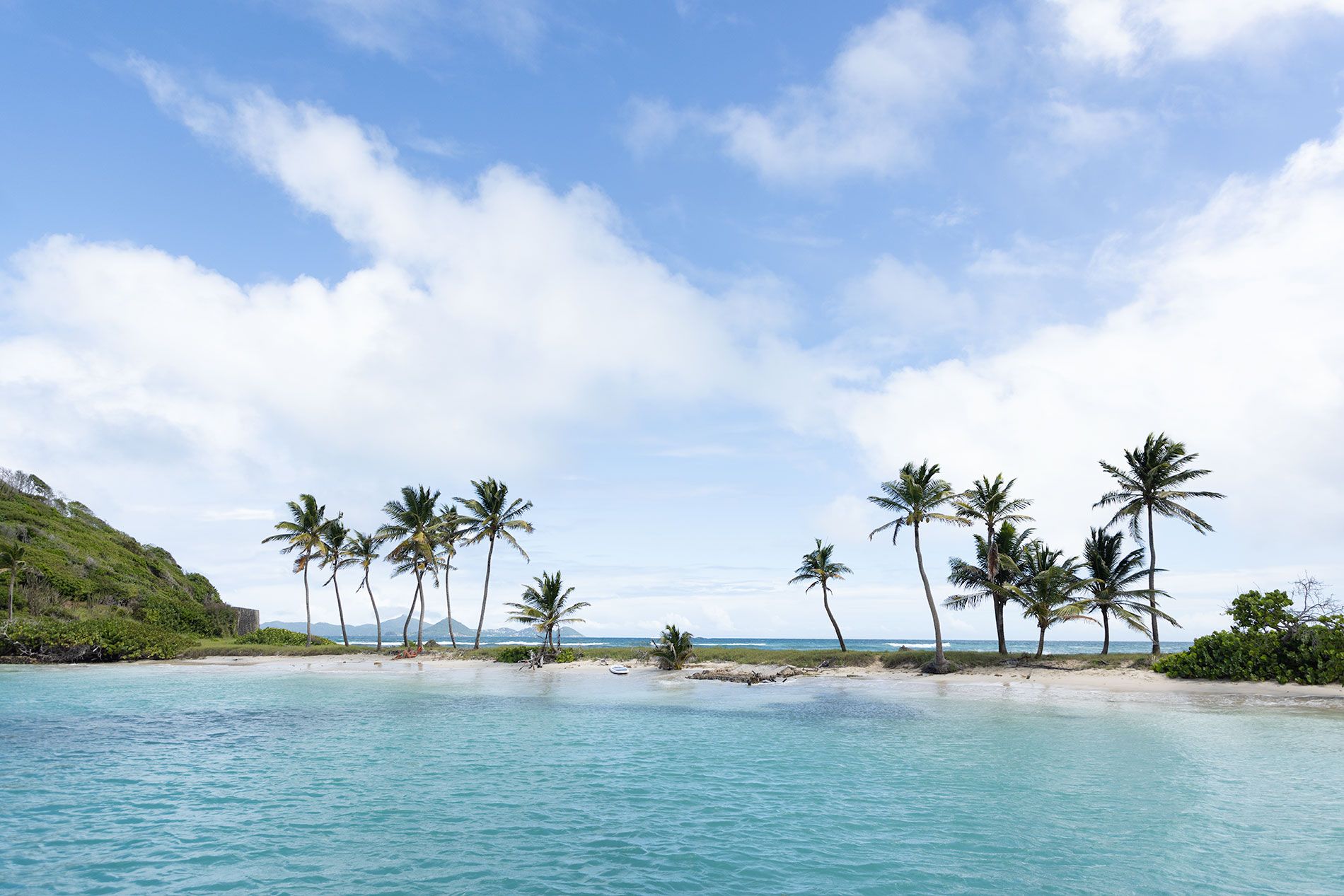
In terms of its positioning, Mayreau is closer to the Tobago Cays and Union Island. This is a small (about 1.5 square miles) and remote island with notable beaches like Salt Whistle Bay. Mayreau is so tiny, that it just so happens to be the smallest inhabited island in The Grenadines, but its beauty speaks for itself. Saline Bay is a must visit spot on the island of Mayreau, especially if you want to go diving. Much like many of the Grenadine islands, Mayreau does not have an airport. The only way to get there is by boat.
Good to know: Aside from the Tobago Cays Marine Park, there are marine conservation zones near Mustique, Canouan, and Mayreau. In these areas, go by the general rule of “take only pictures, leave only wake”, and you’ll do well. You might notice that there are mooring buoys instead of anchoring zones in some areas, while in others, there may be restrictions on watersports. Check local regulations ahead of your trip!
Berado (Turtle Island)
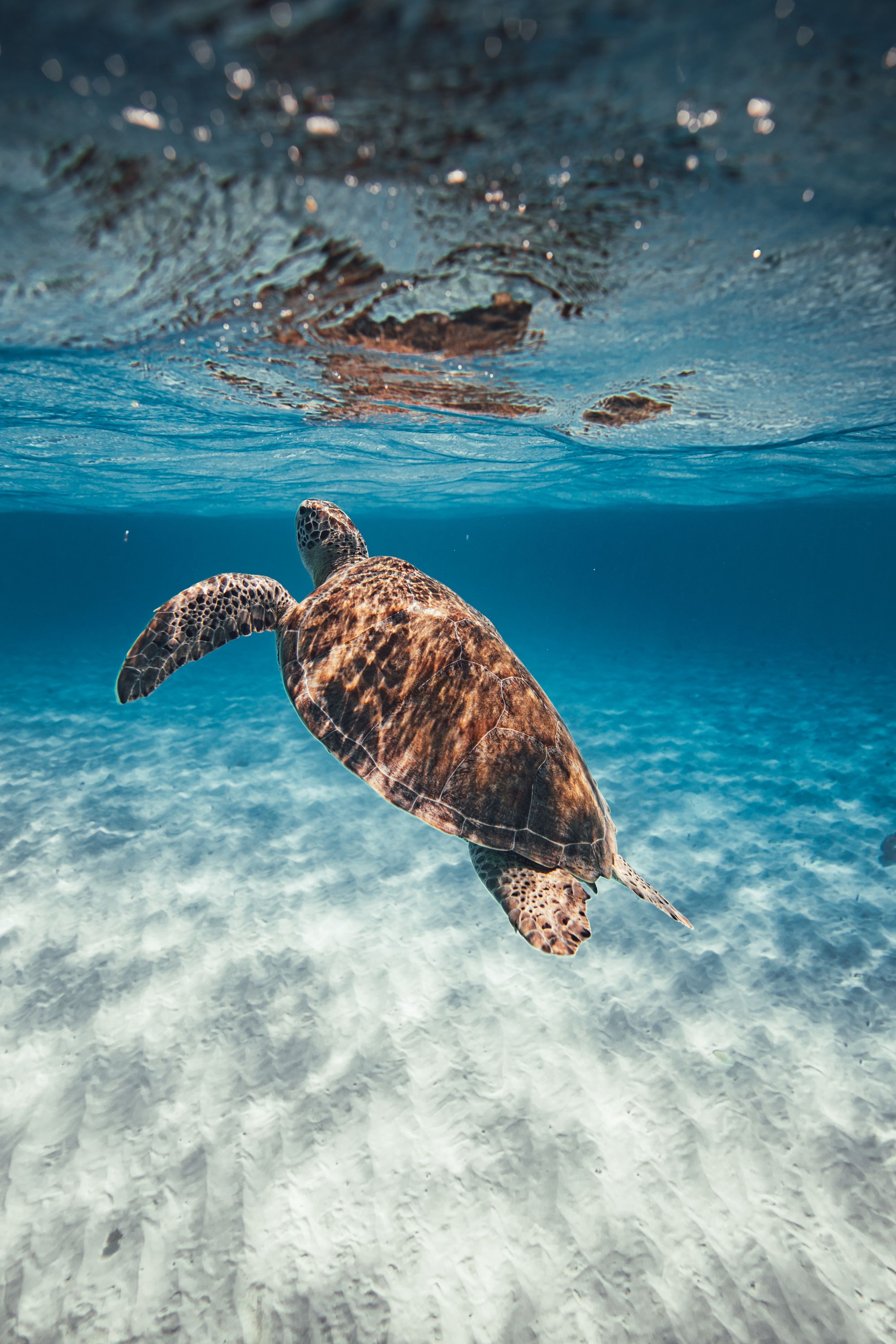
An island-hopping excursion in The Grenadines is incomplete without some wildlife spotting. Berado, also known as Turtle Island, is a great place to do just that. This island is surrounded by sea grass and attracts many turtles. As you venture to this part of The Grenadines, you might notice that there’s several other boats anchored near the island, and lots of snorkelers closer to shore too. Boat engines and loud music can scare the turtles away, but otherwise, they are commonly seen. You can literally stay on the boat and see turtles popping their heads out of the water. While snorkeling around Berado, you may also come across stingrays and lots of starfish.
Sail Rock
There are some places in The Grenadines where you have higher chances of seeing larger marine animals, like Hammerhead sharks, Pilot whales and dolphins. Sailrock is one of these. Hardly an island, Sail Rock is just that, a rock. It’s the peak of an underwater mountain and it’s a fantastic place to dive. Hammerheads have been spotted near Sail Rock, while Pilot whales and dolphins are sometimes seen on the western (Leeward Coast). The Leeward Coast is a great place to go if you want to increase your chances of seeing dolphins, in particular. Sail Rock is just off the Tobago Cays.
Good to know: Though Sail Rock can be a bit more difficult to get to than some of the other dive locations in The Grenadines, some visitors say it can be worth a visit for a unique dive trip, especially on calmer days.
Yacht Charter Options
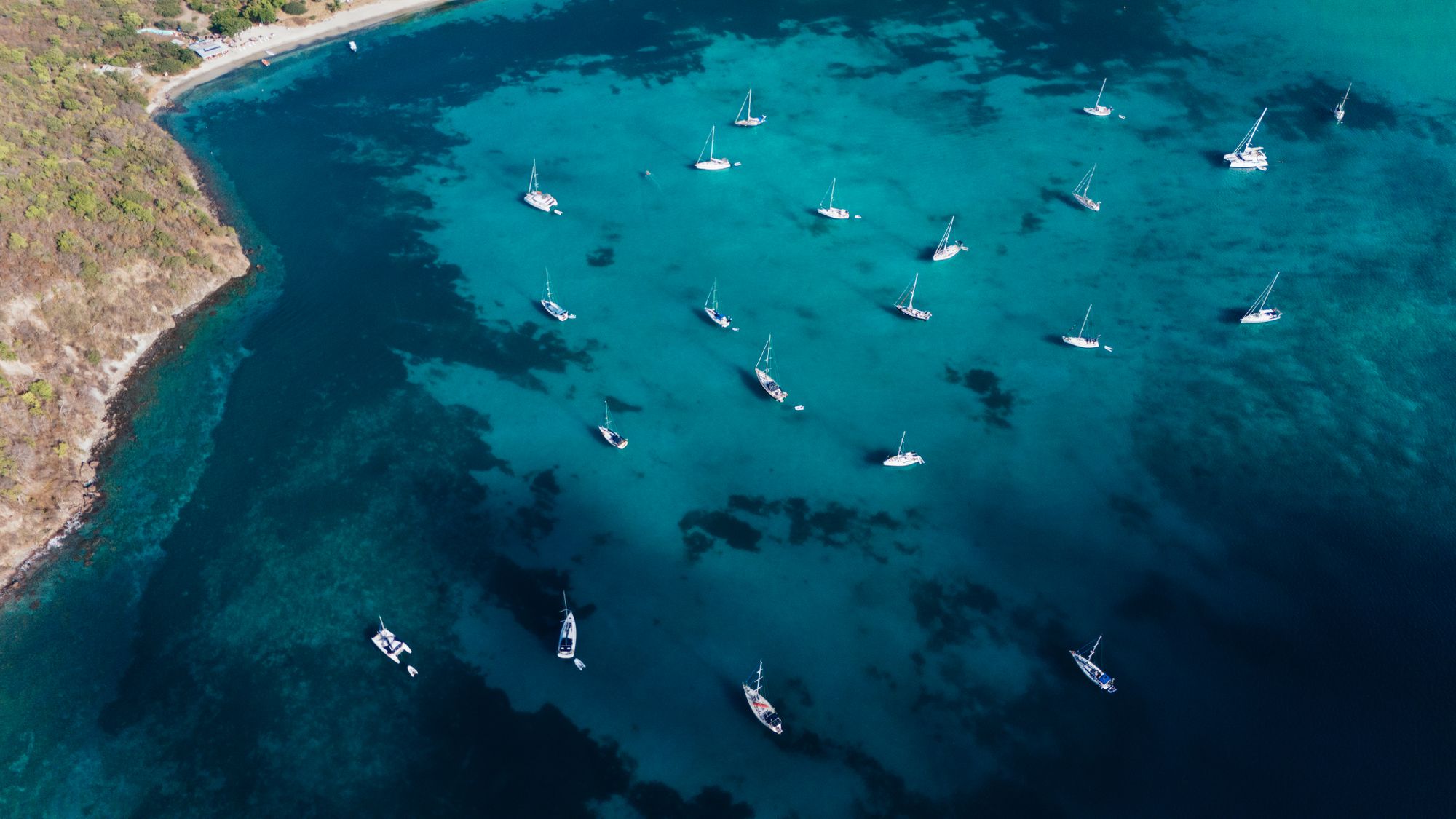
With so many islands awaiting exploration, selecting the right yacht charter is key. As these pretty much serve as your floating home for this adventure, it’s a good idea to go with the most comfortable option. Fortunately, there are many options to choose from including monohulls, catamarans, and motor yachts. Group charters are often the most cost-effective, and several tour companies offer this service. To book a sailing charter, start by selecting your preferred travel dates.
When planning a St. Vincent yacht charter, it’s a good idea to book well in advance to secure the type of charter you want. If you’re not able to book a specific option before your trip, you can always check in with your all-inclusive resort for more information upon arrival. For experienced sailors, avoiding the peak season rush by chartering a boat on your own schedule is an ideal option.
Good to know: In Saint Vincent & The Grenadines, smaller boats are commonly used for whale watching, diving, and fishing trips. These boats offer the advantage of getting you closer to the whales, providing a more intimate experience. And speaking of intimate, check out these Sandals Resorts inclusions for some much-needed extras for your island escape!
Legal Requirements and Customs
Now for entry requirements. Certainly not the most exciting topic, but very important for a sailing trip to The Grenadines. There are many benefits to being prepared legally and culturally, and understanding what to expect can help things go a lot more smoothly. Here’s what you need to know:
Entry Requirements
Before dropping anchor in paradise, you’ll need to ensure that your travel documents are in order and that health requirements related to Saint Vincent & The Grenadines are met. You can learn more about this in our do you need a passport to visit St. Vincent as a US citizen post. As for customs and immigration, there are similar processes for air and sea travel. This requires going through an official port of entry on arrival to SVG. The main ports of entry for yachts are Union Island, Bequia, and Canouan. Let’s get a bit more into the specifics:
Passports and Visas
Much like other international destinations, passports are required for travel to Saint Vincent & The Grenadines. If you don’t already have a passport, you should apply for one well in advance of your intended vacation dates. Ahead of your trip, ensure your passport is valid for at least 6 months beyond your planned stay. Also, make sure you have at least one blank page left for entrance stamps.
In addition to a valid passport, you may be asked to produce a return or onward ticket when passing through immigration. This would be the case if you travel to this destination by air, and embark on your sailing trip once on the island. The requirements can be slightly different if you’ll be entering Saint Vincent & The Grenadines by sea. One of the main differences with sea travel is that only the captain needs to go ashore with required documentation (including passports) for clearance processes. Private vessels are required to pay a Cruise Tax and charter boats must be in possession of a St. Vincent & The Grenadines Cruising License.
As for visas, most visitors can enter St. Vincent and the Grenadines without one for stays of up to 30 days. Always check the latest requirements before traveling to this destination.
Sailing permits
Sailing permits are required to sail the waters of The Grenadines. These can usually be arranged through your charter company or at the customs office once you arrive. Ahead of your trip, it’s worth checking in with the relevant authorities of your yacht company for the most up-to-date information.
Wildlife and Marine Life Encounters
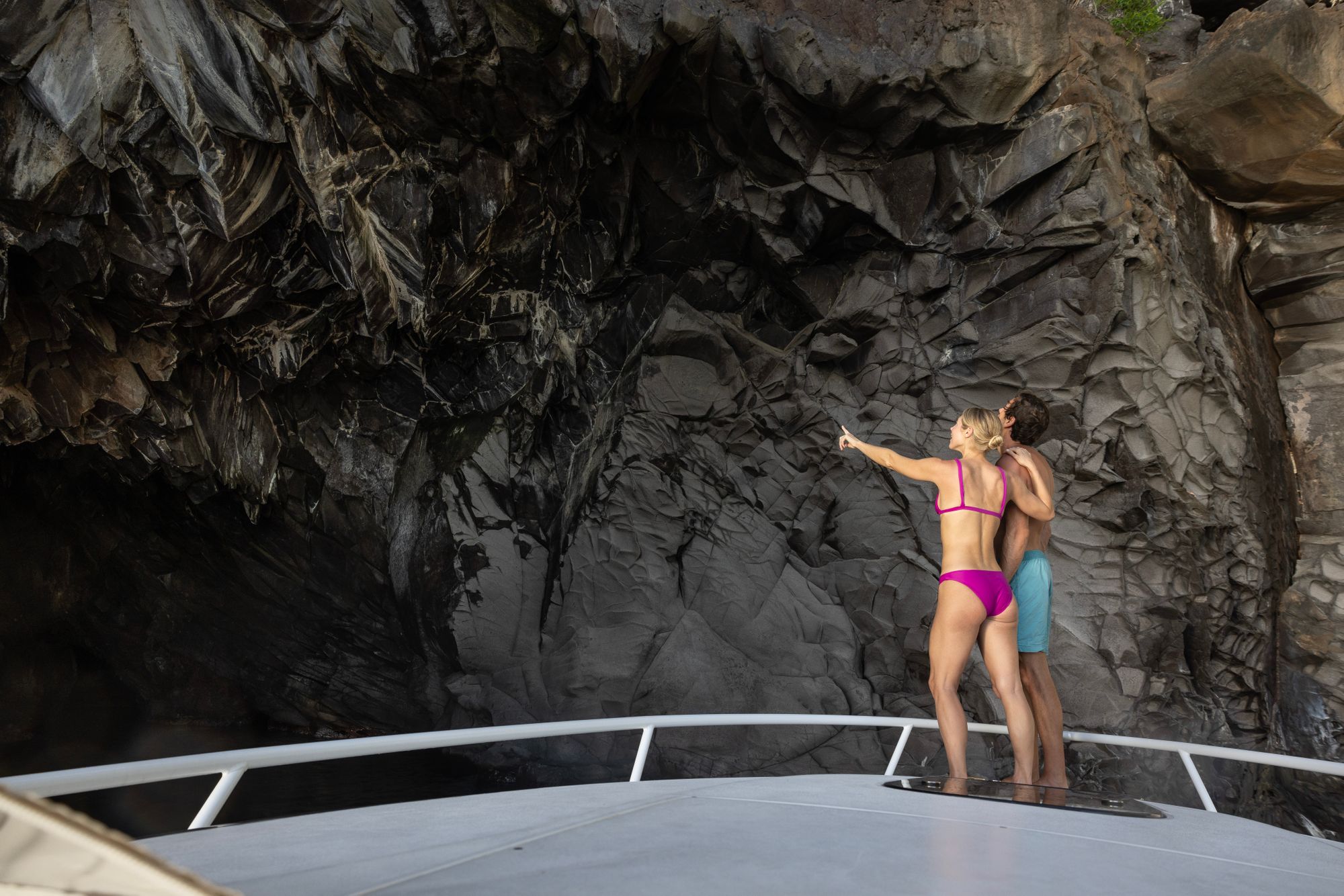
Once the formalities are out of the way, you can really unwind and enjoy the best of sailing in The Grenadines. This destination is home to an incredible array of creatures, both above and below the waves. From colorful tropical fish to rare species of birds, nature calls out everywhere you look. Here’s what you can expect:
Marine Life Observation
Diving in the waters around The Grenadines is like swimming in a nature-made aquarium. While sailing in this territory, you can decide whether you want to snorkel near shallow reefs or go diving in deeper waters. You’ll spot lots of different types of marine life along the way. Though enticing, don’t chase the sea creatures, especially the turtles. If they swim away, they’re not playing hard to get – they’re probably just not that into you.
Sea Turtle Watching
Sea turtles are the most common sea creature you’ll come across while sailing in The Grenadines. You might not spot them at first, but once you recognize their heads popping up out of the water or find yourself swimming right next to them in a marine park, then you’ll start seeing them all over the place. These creatures are gentle, and very chill. The most common turtle species you’ll come across are green and hawksbill turtles.
There are some guidelines that you’ll need to follow when it comes to swimming with turtles. First, keep a respectful distance. Don’t touch or feed them and use reef-safe sunscreen to protect their habitat. Just swimming with them is fantastic enough, and truly humbling. As you watch these ancient mariners go about their day, it might even sink in that slow and steady truly wins the race.
Whale and Dolphin Spotting
The waters around The Grenadines are also a wonderful place to spot whales and dolphins, especially between December and April. While sailing in The Grenadines you might spot Humpback whales as they pass through on their annual migration, Sperm whales (the world’s largest toothed predator), and several species of dolphins including spinner and pantropical spotted dolphins. All of these are regular visitors to these waters. As you sail across the islands, keep your camera ready for these incredible sightings.
Good to know: Aside from marine life, there’s lots more to look out for in Saint Vincent and The Grenadines including iguanas, land crabs, and tropical birds of all varieties.
Learnings Recap
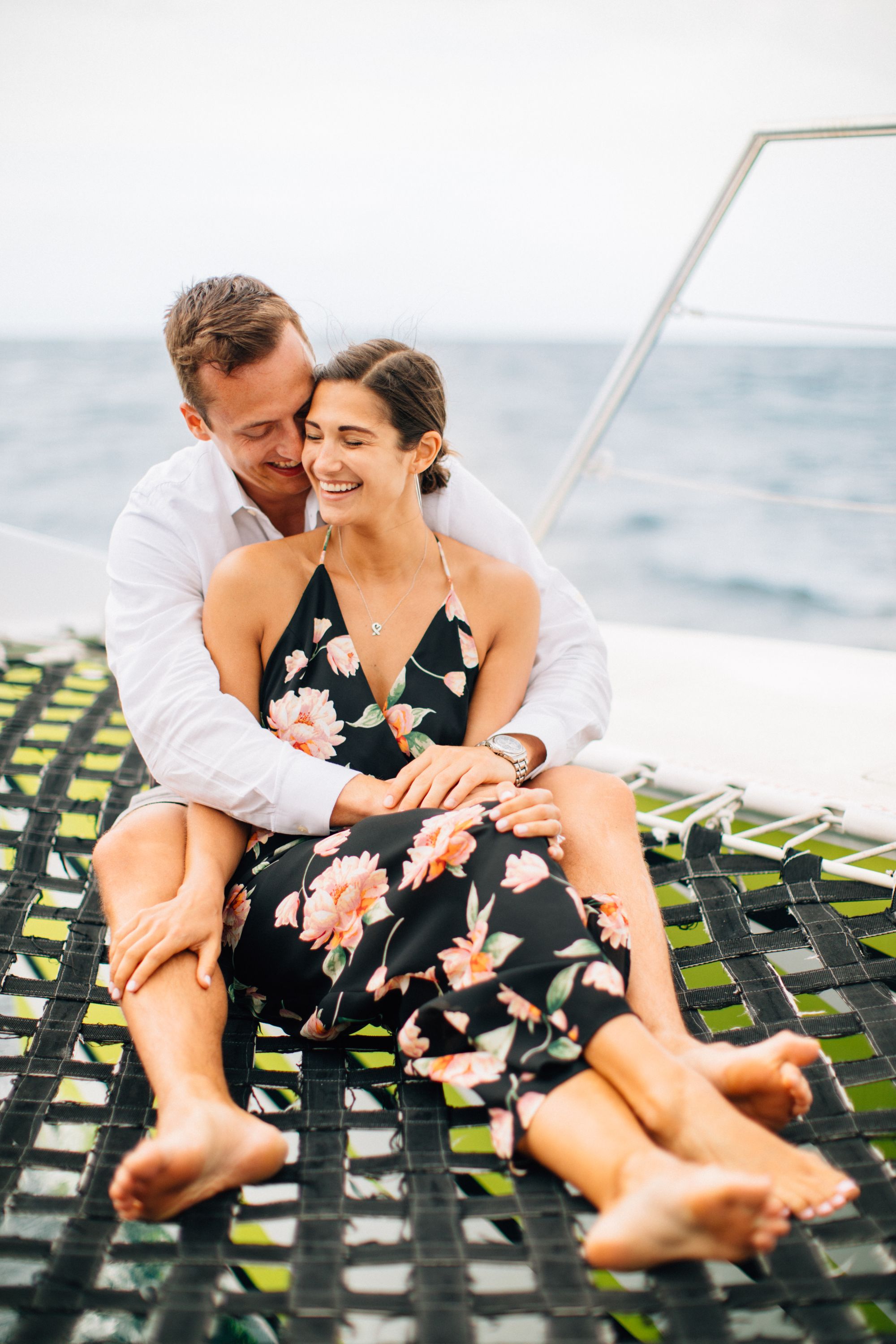
There’s so much to learn and discover when sailing in Saint Vincent & The Grenadines. And, with just a little preparation, you’re now well on your way to an unforgettable sailing adventure. Before you rush off to pack your swimsuit and sunscreen, let’s take a moment to recap the key takeaways.
-
The best time to sail is during the dry season (December to May) for optimal weather conditions.
-
Must-visit destinations include the Tobago Cays, Bequia, and Mustique – each offering unique experiences.
-
Choose your yacht wisely: monohulls for the purists, catamarans for space and stability, motor yachts for luxury and speed.
-
Safety first: Always have proper safety equipment and be aware of local emergency procedures.
-
Respect local customs and environmental regulations to be a responsible visitor.
-
Embrace sustainable sailing practices to help preserve the beauty of the Grenadines.
-
Immerse yourself in local culture and cuisine for a richer, more authentic experience.
-
Keep an eye out for unique wildlife encounters, both on land and in the water.
Final Thoughts
The beauty of sailing is in the flexibility it affords, especially when navigating Saint Vincent & The Grenadines. While you can explore numerous islands on your journey, the best route is one that provides a taste of everything this destination has to offer. Though you’ll encounter many different islands and cays with gorgeous beaches, fascinating wildlife, and superb scuba diving and snorkeling, the ones that will stick close to your heart are those you make the greatest connection with.
One thing’s for sure, with watercolors from light to deep blue, blending further out into darker blues, this is one of the most scenic destinations in the world. Pair your Grenadines yacht charter with an all-inclusive resort vacation with Sandals Saint Vincent (11 restaurants, 9 bars, 5 pools, a spa and more!), and you might just find that it’s your best vacation yet!
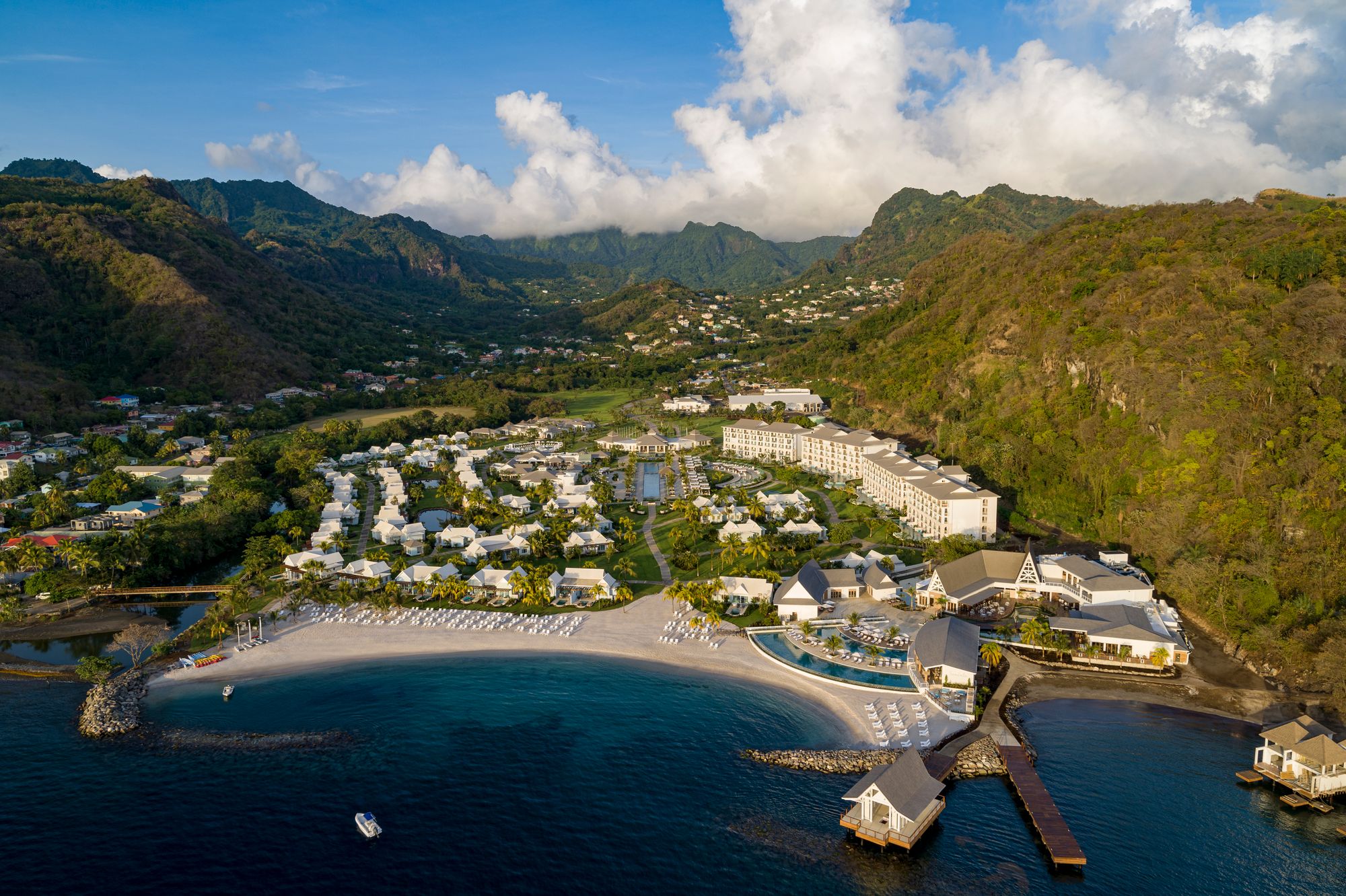
Insider Tip: After a day of sailing the stunning Grenadine waters, retreat to your Sandals Saint Vincent suite where comfort meets serenity. Accommodation options include private villas where you can relax and soak up the peace that comes with a Caribbean getaway!
